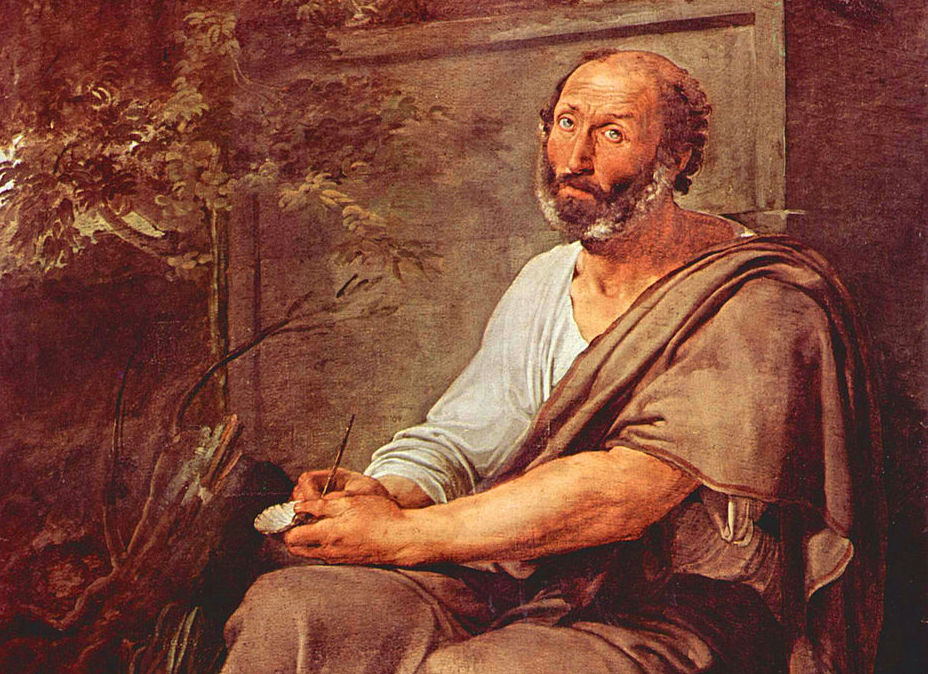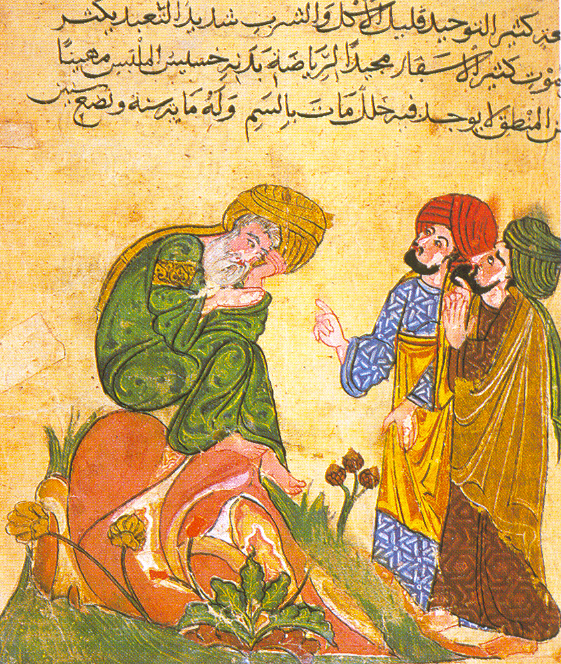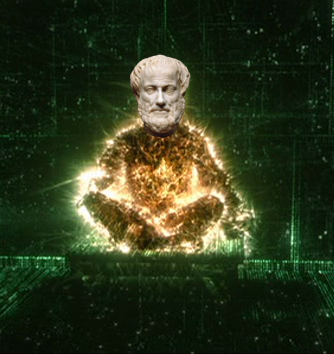The foundational truths are written into our experience. We just have to remember them.
An Aristotelian Founding?

Is Aristotle’s nature that of the Founders? Is it enough?
Glenn Ellmers admirably takes early 20th-century Historicist and Progressivist critics of the American framers to task in the name of a goal-directed nature, by which he means Aristotle’s understanding of nature.
His essay adopts two principal aims: first, to argue the American regime’s focus on natural rights can successfully be grounded in an Aristotelian understanding of nature, and, in turn, to show nature as Aristotle understood it—nature as a whole—has a purpose (or goal, telos).
Each of these contentions is worthy of examination. Returning to a consideration of Aristotle’s understanding of nature and contrasting it with later, early modern conceptions of nature can broaden one’s perspective and allows for a greater sensitivity to the problem of nature. But one wonders whether 21st-century critics, who have seemingly been influenced by Historicism and cannot even be bothered to revisit Locke, will have any patience whatsoever for the serious study of Aristotelian natural science.
However, maybe the point is to urge the framers’ supporters, not their critics, to turn to Aristotle. Indeed, for one who is interested in thinking through how Aristotle’s thought accords with or helps us to understand the principles of the American Founding, Ellmers’ article provides rich nourishment. Ellmers has nobly adumbrated the thought of a great thinker quite parsimoniously. Instead of focusing on our many areas of agreement, I will limit myself to critical remarks.
Where’s Locke?
One might wonder why Aristotle’s account of nature will best help us to understand the framers’ notion of nature as a guide for human conduct.
Wouldn’t it make more sense to turn to modern thinkers?
It is striking that Locke’s name only occurs in an epigraphical quotation at the start of the essay. Wouldn’t this be the more obvious place to turn for an account of nature that accords with the thought of the framers? What’s wrong, one wonders, with a Lockean account of nature?
Or is the problem with the moderns that, while they offer us advice on how to live well collectively, they don’t have much to say by way of how one ought to live as an individual?
While the framers surely placed more stock in the thought of early modern and Enlightenment thinkers than in the ancients, it is no doubt true that they nevertheless occasionally looked to the ancients for guidance. In a letter from May, 1825, for example, Thomas Jefferson admits the Declaration of Independence was an invention not of his own mind, but that it was rather an expression of the American Mind, which in turn had been formed by the political thought of several men, including Aristotle.
But, Jefferson only says that Aristotle exerted an influence on the political thought of the American Mind, and even here only in part; Aristotle was one among many who shaped the American Mind. One would like to see Ellmers marshal evidence that the framers took their understanding of nature from Aristotle’s natural science.
An Aristotelian Founding?
To be sure, human beings are a part of nature, and, according to both Aristotle and the framers, they have a nature. But even Aristotle’s account of human nature is out of accord with the framers’, at least as it’s presented in the Declaration of Independence. For that document reflects well the Social Contract theories of the day, which denied Aristotle’s famous dictum that man is by nature a political animal.
Man, according to Aristotle, is fit for living in a polis, a city. And, if we are being honest with ourselves, modern states far surpass the ancient polis in size and differ from it in quality (it is doubtful that the state is even a community [koinōnia] as Aristotle understood the term). When Aristotle advances the notion that man is fit for living in a city, he has in mind that human beings can best fulfill their nature in a republican city that allows for the human capacity for rational self-government.
Does modern representative government satisfy that capacity?
Apart from denying man’s natural sociability, the Declaration declares all men to be equal, while Aristotle, by contrast, declares inequality to be a natural and permanent feature of politics—there are even, according to Aristotle, slaves by nature (Politics 1254b). Surely this conception of human nature is difficult to square with the notion that all men are created (another problem for Aristotle’s conception of nature) equal (ditto) and are endowed by their Creator (ditto) with certain inalienable rights (ditto).
And while Aristotle conditionally posits that humans have a telos, many early moderns deny this (Hobbes famously contends that there is no there is no summum bonum). Again, the Declaration speaks of ends, plural. Man has rights—not an end, singular. Among these rights are those to life, liberty, and the pursuit of happiness. That is, the founders, contra Aristotle, leave happiness undefined, and, in this respect, the Founding is decisively modern. All pursuits of happiness are ostensibly open, and the pursuit seems to be based on one’s desires without any ranking of those desires or ways of life.
I grant, however, that Aristotle unquestionably exerted some influence on the political thought of the American founding. Ellmers’ provides an excellent reminder for those who think otherwise.
Aristotle’s Anthropomorphism
Much more difficult to defend is the notion that Aristotle’s natural scientific writings affected how the framers understood the world.
Modern thought—the thought that inspired the founding—eschewed emphatically and explicitly the notion that nature has a telos. Indeed, modernity is marked, as Ellmers suggests, by materialism, and it focuses chiefly on what Aristotle called the material cause.
As we turn to Ellmers’ account of Aristotle on nature, I can only say Aristotle’s text seems much less certain than Ellmers indicates. That is, while Ellmers asserts that for Aristotle nature has a goal, Aristotle is much more circumspect.
For Aristotle, understanding nature presents great perplexities; the natural scientist regularly encounters impasses and is often compelled to face serious alternatives raised by previous philosophers, including, for example, the claim that there is no fixed nature. Nature, that is, may not conform to the human desire to see it as purposive. Ellmers mentions the hazard of imposing human preferences onto things, but I fear the risk is greater than he grants.
Many of the examples Aristotle uses to show that nature has a purpose have a curiously anthropocentric quality. In other words, maybe the whole only looks ordered from the human point of view. And if the telos of the world is only discernable to a human mind, that would present serious obstacles to an account of nature, unless humans are the highest thing in the universe, which, as Aristotle tells us in the Ethics, would be absurd.
In the chapters of the Physics where Aristotle discusses the purpose of nature, (Book II, Chapters 8 & 9), he indeed argues that nature has a telos, but he uses, among other examples, houses, saws, and bricks to support the claim. That is, his principal examples are—problematically—manmade artifacts, which, indeed have purposes, but purposes imposed by humans.
Ellmers himself speaks of the telos of a collie or of a beagle, examples that would seem to be free of this concern.
But collies and beagles were bred by human beings; they were generated by human beings from other breeds, and they were bred by human beings to achieve a particular purpose (collies were bred to herd sheep, and beagles were bred to hunt hares). So even these supposedly “natural” examples have their goals or purposes determined not by nature—or at least not solely by nature—but by human beings.
Ellmers’ brief discussion of the telos of organic and inorganic matter raises the perplexities associated with this line of thought. But in conclusion, he says only living beings have ends—or rather, ensouled beings—do all living things have a soul? Of course, Aristotle says so, but would we agree? Would Ellmers?
Are viruses living beings? This seems to be a matter of some dispute among contemporary natural scientists. But if they are alive, what is the purpose of a virus? Do the ends of various ensouled beings come into conflict, or are they in harmony? How can we speak of the order of the whole if the parts are at odds?
The most complicated example Aristotle gives when speaking of the purpose of nature is rain. To be sure, Aristotle asserts that rain, too, shows that nature has a purpose. But his conclusion is more tentative than it appears at first glance. Here, Aristotle recasts his teleological critics’ argument for chance as a perplexity or an impasse.
Why does it rain? Does it happen so that the grain may grow, Aristotle asks, or by a kind of natural necessity?
Even in this purely natural example, note that Aristotle refuses to leave behind human concerns, for, from the human point of view, the point of rain is to provide water for our crops.
Aristotle then turns to the example of sharp teeth and molars—how would the critic of teleology respond to these examples? Surely, sharp teeth are for biting and molars for grinding.
But our proponent of chance posits that things just happen to work out advantageously for some species. Those animals who possess teeth useful for acquiring nutrition fare well and those that don’t, don’t. Certain animals seem to have fared advantageously by chance, and others did not fare so well. And eventually, luck may well run out even for those who fare well (e.g., dinosaurs).
What Justifies Common Opinion?
It cannot be denied that Aristotle responds to our objector by declaring that it would be impossible for these things to hold as the account of chance posits.
But for evidence, Aristotle relies on two examples that “seem” to be the case or that are reputed to be the case according to common opinion.
Common opinion holds that it isn’t chance when it rains in the rainy season, but it is chance when it rains in the dry season. Similarly, according to common opinion, it is due to chance when it’s hot in the winter.
But couldn’t common opinion be wrong? Should we rest satisfied that Aristotle solved the perplexity posed by chance through the path of common opinion?
There may very well be a rational way out of the perplexity, but Aristotle does not provide it here.
The Rule of Vipers
His Arabic and Islamic successors called the medieval Islamic philosopher Al-Farabi their second teacher, after Aristotle. At the beginning of his Political Regime, Al-Farabi, following Aristotle, outlines an account of the universe that is highly ordered and that aims at a purpose.
But, as others before me have pointed out, Al-Farabi quietly indicates that this perfectly ordered whole contains weeds and vipers, which, at least in his account, do not contribute to the whole but actually work to subvert it. A viper, for example, might kill a virtuous human being.
Thus the whole is not so perfectly ordered.
Perhaps more discomfiting from the human or political point of view is the lack of a clear order in human affairs.
Al-Farabi’s evidence? The wise do not rule.
The American Mind presents a range of perspectives. Views are writers’ own and do not necessarily represent those of The Claremont Institute.
The American Mind is a publication of the Claremont Institute, a non-profit 501(c)(3) organization, dedicated to restoring the principles of the American Founding to their rightful, preeminent authority in our national life. Interested in supporting our work? Gifts to the Claremont Institute are tax-deductible.
Notes on nature’s means to nature’s ends.
What is the Bedrock of Being? (A Reply to Alex Priou.)
Must the natural scientist become a political philosopher?
A Response to Glenn Ellmers and J. Eric Wise
What If Rights Have Gone Extinct?






